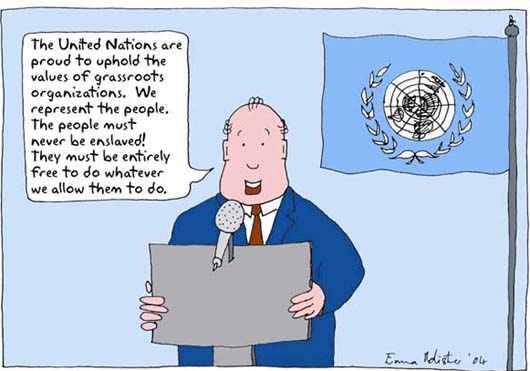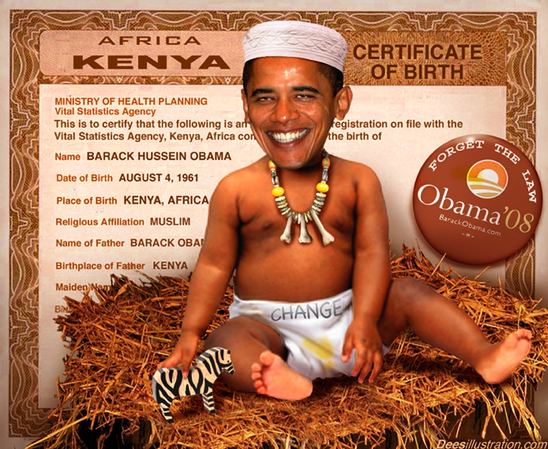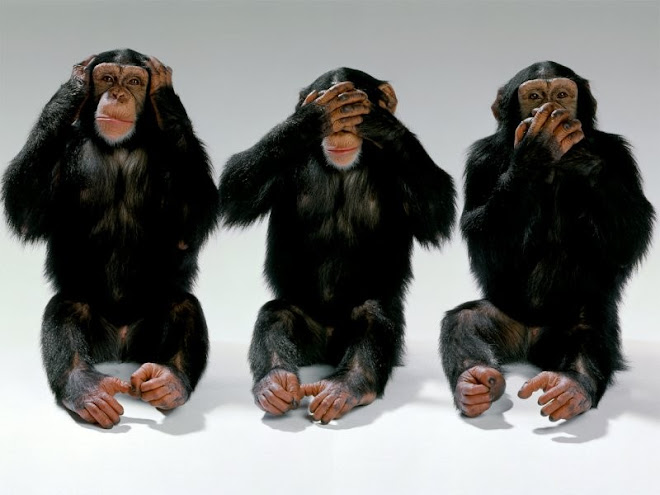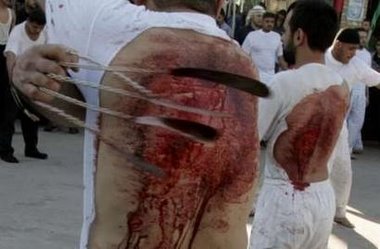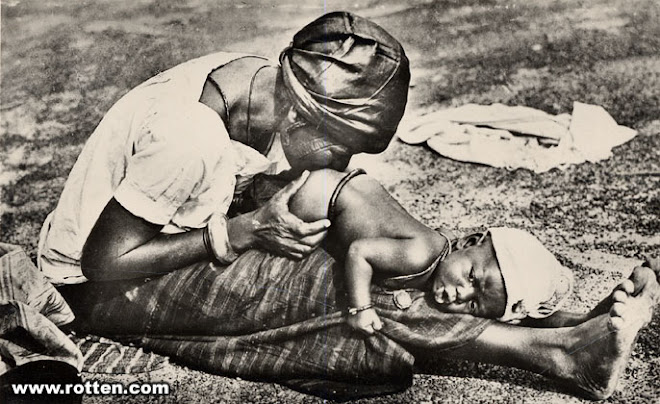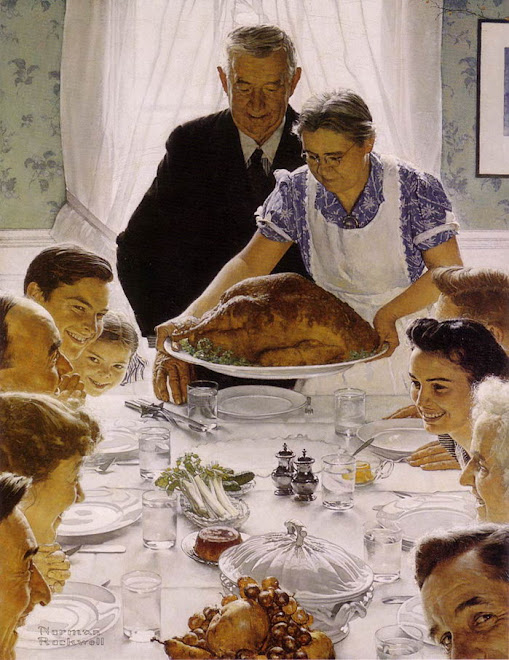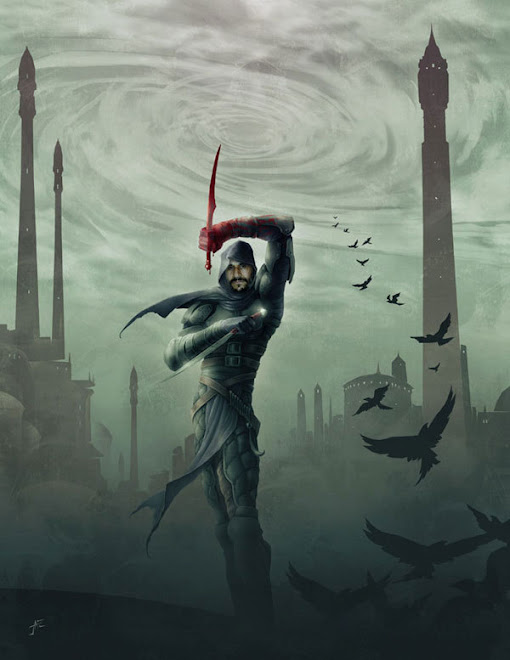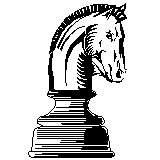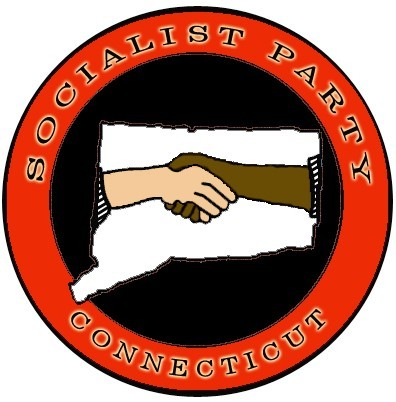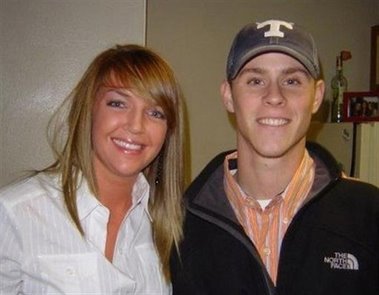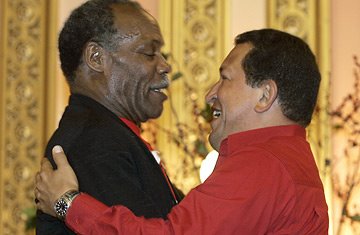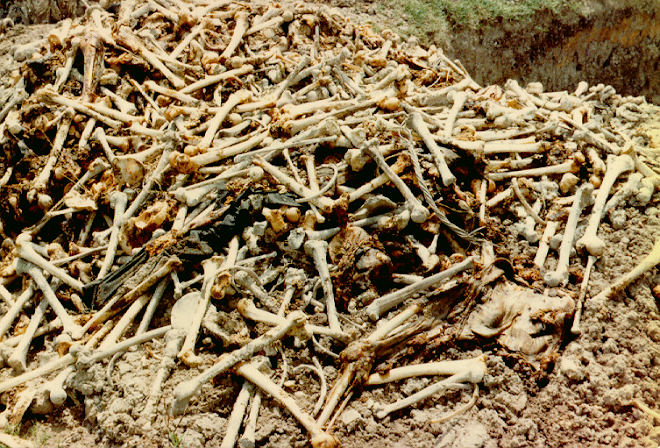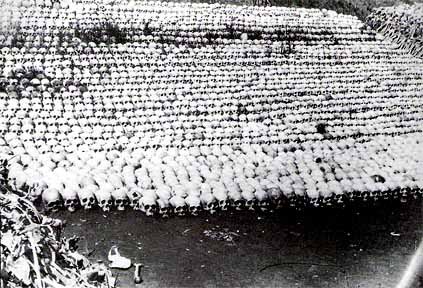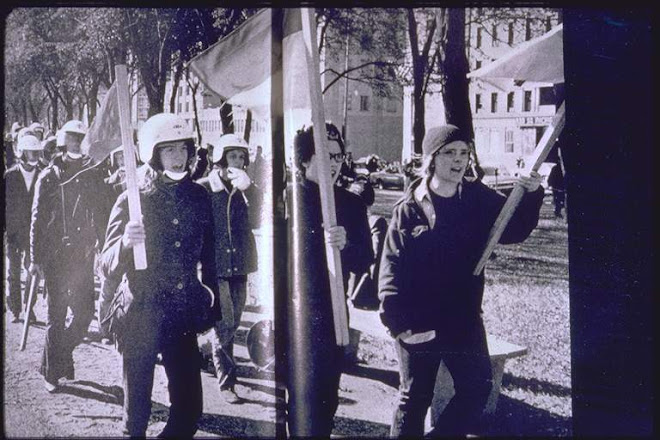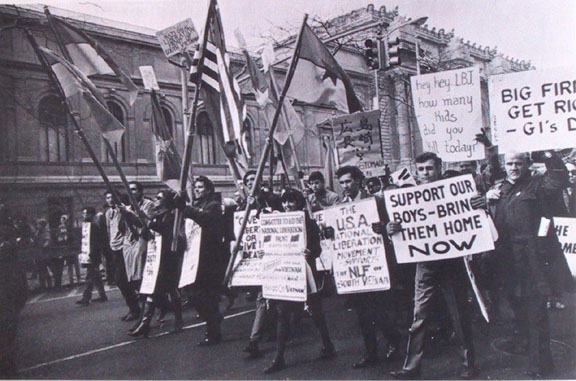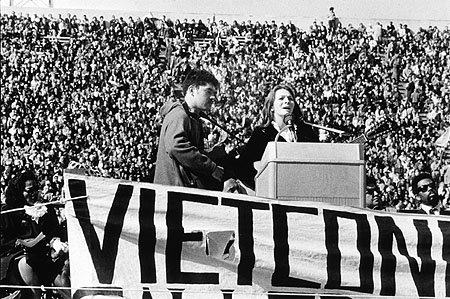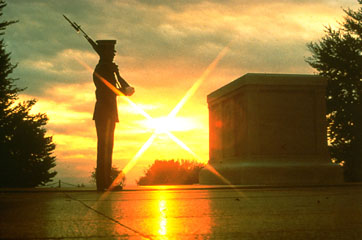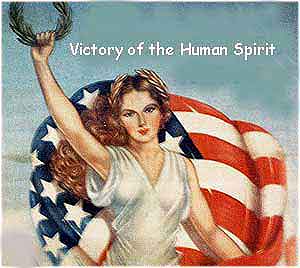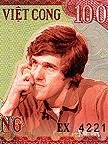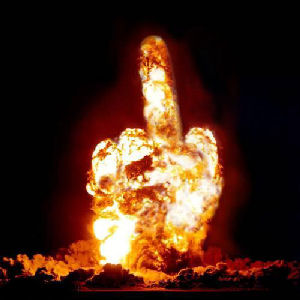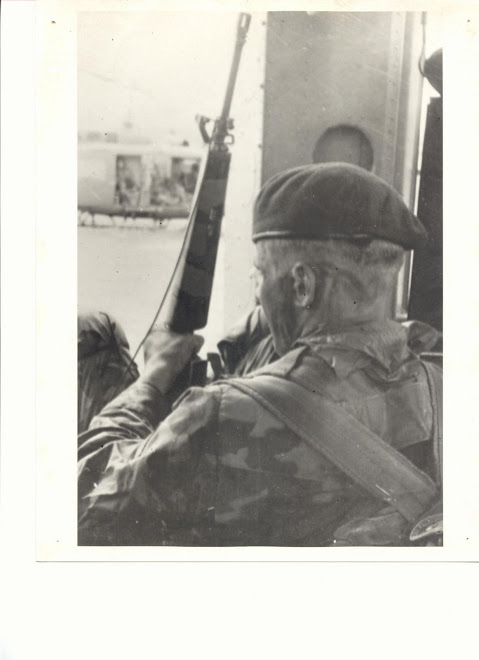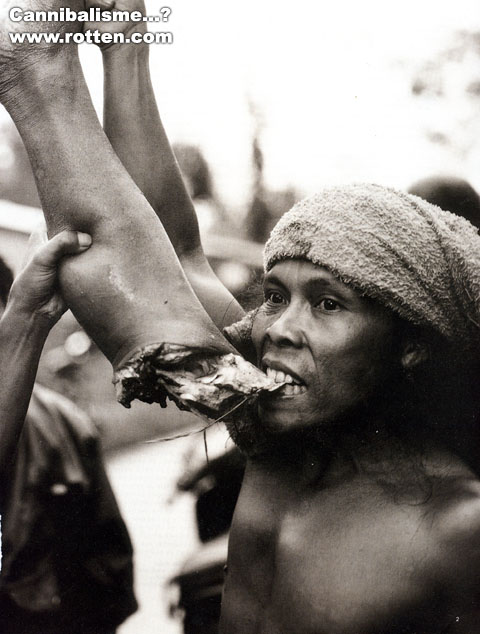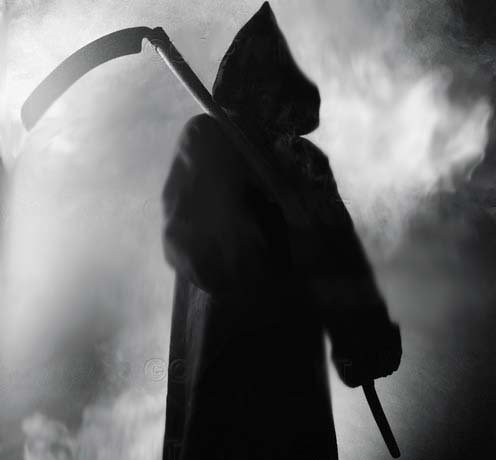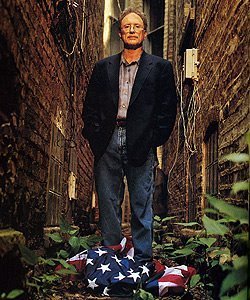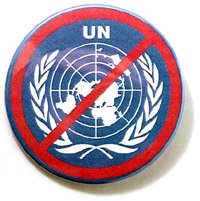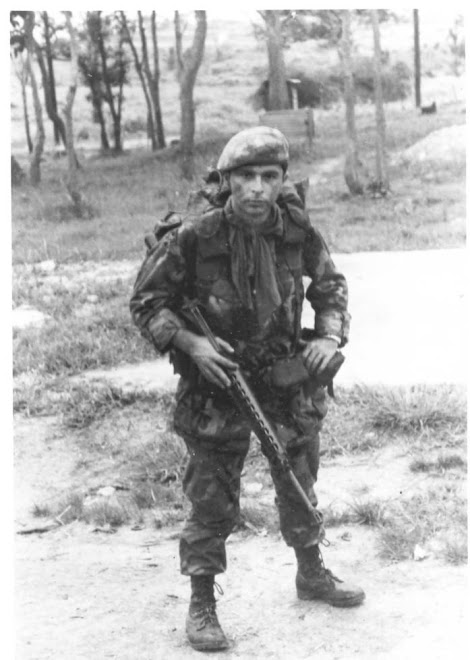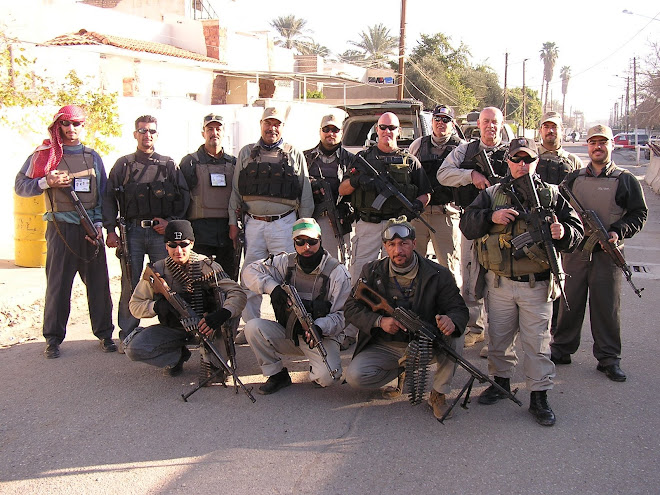Viet Nam War in Poetry
An American Sonnet
If freedom is Heaven on Earth,
Then communism is Hell
If freedom is hope,
Then communism is despair
If freedom is man’s happiness,
Then communism his sufferings
If freedom is life,
Then communism is death.
The Vietnam Veteran Wall lives on
The Berlin Wall has perished
We, free citizens of the world,
Yearn to see Vietnam’s future cherished.
Let go of Uncle Ho’s oppression
Let God lead our liberty mission.
Linh Duy Vo
(The Boy in the Poem)
13 March 1999 ©
Showing posts with label Vietnam Veteran. Show all posts
Showing posts with label Vietnam Veteran. Show all posts
Wednesday, December 3, 2008
Viet Nam War in Poetry
Labels:
Berlin,
Communism,
Death,
Freedom,
Heaven,
Hell,
Life,
Nazism,
Socialism,
Viet Nam Generation,
Viet Nam War,
Vietnam Veteran
Wednesday, November 19, 2008
How the Viet nam Veterans Against the War Morphed into the Viet Nam Veterans of America
The Vietnam Veterans of America: the ‘VVA.’ – would never have survived without the help of Jane Fonda and, of all people, Bruce Springsteen:
John Kerry, co-founder of the Vietnam Veterans of America with Bobby Muller, the organization that has a wreath decorating Ho Chi Minh’s grave.
Below, See: Michael Kranish; kranish@globe.com;© Copyright 2003 Globe Newspaper Company:
“… Bobby Muller, the paraplegic Vietnam Vet…inspired the Bruce Springsteen hit, 'Born in the U.S.A.,’ is a close friend of John Kerry…
Rock star Bruce Springsteen helped save the fledgling VVA, which was struggling for cash because the organization never drew large numbers of Vietnam Vets to its membership. …In fact, Bruce Springsteen and Jane Fonda in many ways made possible the success of the Vietnam Veterans of America. The VVA was dying on the vine – Springsteen performed benefit concerts for the VVA, which, of course was originally called the Vietnam Veterans Against the War…
Bobby Muller, “My favorite Vietnam War movie is, ‘Platoon.’ [It's also Hanoi's favorite movie.]
“Both Kerry and Muller were presumed to be future stars when they became officers and served in Vietnam. Both returned with purple hearts and hero status and joined the antiwar movement…Their parallel lives continued as both went to law school -- Muller to Hofstra, Kerry to Boston College…in 1978, they co-founded (with two others) Vietnam Veterans of America...
“Like Kerry (Muller also went to Vietnam as a college graduate in 1968. Muller was 23 years old.), Muller became an outspoken opponent of the war, appearing at rallies and on national television shows, but with the added bona fide of being a paraplegic.
Muller also contributed a chapter to Kerry's 1971 antiwar trashing of the Vietnam War and the veteran, ''The New Soldier.'' ''As far as I'm concerned, Bobby Muller is one of the great heroes of the veterans' efforts in the country,'' Kerry says.
“But, In December 1981, a few months after Springsteen's benefit concert, Muller went to Hanoi as part of his campaign to get the United States to normalize relations with Vietnam.
Bobby Muller, with financial backing from Jane Fonda and Bruce Springsteen, was able to travel to Hanoi where he laid a wreath on [the VVA’s] behalf at the mausoleum of communist leader Ho Chi Minh. A card with said: ''With Respect, Vietnam Veterans of America.''
“The visit ''caused a firestorm back here in the States,'' recalled John Terzano, who was with Muller on the trip and is now vice president of the Vietnam Veterans Foundation. Some veterans called Muller a traitor who should be tried for treason.
But Muller thinks he was just ahead of his time; this was long before Kerry returned to Vietnam [and advocated the same thing] and 14 years before President Clinton normalized relations.
[In an NPR interview, Muller said: “The process of normalization with Vietnam was dealt a tremendous setback by President Reagan in focusing on our war dead and casting in political terms the issue of accounting for the missing…”
In the same interview, Muller, speaking about Sen. John McCain, said,
“…(McCain) was the only person that I recommended (emphasis added) to the Vietnamse not be given a visa to visit their country. The reason I suggested he not be granted the visa was because he was so angry towards the Vietnamese because of his wartime experience.” So Booby Muller has some juice with the Hanoi Politburo...
…Senator McCain was a POW - in lengthy periods of solitary confinement - by the North Vietnamese Army, for 7 years. He was physically and psychologically tortured, and like other PO’s, kept on a starvation diet.
Bobby Muller, (friend of John Kerry and Jane Fonda)…apparently carried some weight with the Hanoi government. His statements indicate that Hanoi sought the VVA leader’s opinion on which Americans should and who shouldn’t be allowed to travel to that communist country.
Additional comments by Muller in this NPR interview:
[it was] “…the veterans that had gone into the villages and killed the women and children;” and,
“…Our organization grew out of the Vietnam veteran movement in the late 70’s…” (the VVAW).”
The VVA and its 1981 offshoot, the Vietnam Veterans Foundation, were more stable financially because of the Springsteen concert.
''Without Bruce Springsteen, there would be no Vietnam veteran’s movement,'' Muller often says. (Today Muller heads only the foundation, which is separate from the VVA.)
“Three-fourths of the foundation's $13 million budget comes from the US government.
[Muller today is concerned about the US involvement in Iraq – and Kerry is busy back-peddling on his Senate votes about the war.]
''This is Vietnam all over again,'' said Muller.”
Michael Kranish can be reached at kranish@globe.com;© Copyright 2003 Globe Newspaper Company.
Curious “Facts” (but mostly untrue) reported in “Glossary of Vietnam War Terms, from the, “Vietnam Era Educational Center, a part of the New Jersey Vietnam Veterans' Memorial Foundation, an offshoot of the VVA:
VVA: Vietnam Veterans of America. … was founded in the late 1970s by Bobby Muller, Jim Pechin, and other former VVAW activists [John Kerry, not mentioned in the ‘glossary,’ is one of the VVA’s four founding officers.);
“the Vietnam Veterans of America has grown to become the nation's largest organization of Vietnam Veterans…
Fact: the VVA has never grown much above 30,000, and at least half of that are ‘honorary members’ who never served in Vietnam or even in the military…while the AMerican Legion and the VFW each had over half a million Viet Nam Vets.
VVAW -the Vietnam Veterans Against the War. This was an antiwar organization formed in the mid-1960s. Its membership peaked at approximately 20,000 members, including 2,500 on active duty in Vietnam, in 1971. Fact: A completely implausible number…
Kerry as Senator, and things Viet Nam: Atrocity by Parliamentary Procedure
Washington Times, LETTERS TO THE EDITOR, December 6, 2002:
“Senator Kerry lobbied for renewed trade relations with Hanoi. At the same time, his cousin, C. Stewart Forbes, chief executive for Colliers International, assisted in brokering a $905 million deal to develop a deep-sea port at Vung Tau, Vietnam — a not-so-odd coincidence.
“…in the ‘Inside Politics’ column of Nov. 14 (Nation), historian Douglas Brinkley is writing Mr. Kerry's biography.
Hopefully, he'll include the senator's latest ignominious feat: preventing the Vietnam Human Rights Act (HR2833) from coming to a vote in the Senate, claiming human rights would deteriorate as a result.
His actions sent a clear signal to Hanoi that Congress cares little about the human rights for which so many Americans fought and died.
“The State Department ranked Vietnam among the 10 regimes worldwide least tolerant of religious freedom. Recently, 354 churches of the Montagnards, a Christian ethnic minority, were forcibly disbanded, and by mid-October, more than 50 Christian pastors and elders had been arrested in Dak Lak province alone.
“On Oct. 29, the Vietnamese secret police executed three Montagnard’s by lethal injection simply for protesting religious repression. The communists are conducting a pogrom against the Montagnards, forcing Christians to drink a mixture of goat's blood and alcohol and renounce Christianity.
“Thousands have been killed or imprisoned or have just "disappeared." The Montagnards lost one-half of their adult male population fighting for the United States, and without them, there might be thousands more American ****s on that somber black granite wall at the Vietnam memorial.
“Mr. Kerry lobbied for renewed trade relations with Hanoi. At the same time, his cousin C. Stewart Forbes, chief executive for Colliers International, assisted in brokering a $905 million deal to develop a deep-sea port at Vung Tau, Vietnam. — An odd coincidence?
“Thousands have been killed or imprisoned or have just "disappeared." The Montagnards lost one-half of their adult male population fighting for the United States, and without them, there might be thousands more American ****s on that somber black granite wall at the Vietnam memorial. (by, Mike Benge) (http://www.vietnamveteransagainstjohnkerry.com/ker_beng_wt.htm
XXXXXXXXXXXXXXXXXXXXXXXXXXXXXXXXXXXXXXXXXXXXXXXXX
On Labor Day weekend 1970, Kerry - then a rising star with Vietnam Veteran Against the War - teamed up with Janer Fonda as the two headlined an ugly anti-war in rally in Valley Forge, Pa., railing against U.S. policy in Southeast Asia from the back of the same flatbed truck.
The photo shows "Hanoi Jane" listening raptly as speakers denounced American soldiers for committing "genocide" in Vietnam and accusing the U.S. of "international racism."
Three rows behind 'Hanoi Jane" sits a man who bears a striking resemblance to the Democratic presidential front-runner. According to Corbis Images, which owns the image, the photo was taken at the same 1970 Valley Forge protest that turned Sen. Kerry into an anti-war star.
Douglas Brinkley's biography, "Tour of Duty" chronicles Kerry's exploits at Valley Forge, where he reportedly followed Fonda onto the back of that pick-up truck to deliver his own diatribe against the war in Vietnam.
"We are here because we above all others have earned the right to criticize the war on Southeast Asia," Kerry shouted into the microphone, as Fonda and the crowd cheered wildly.
"By the time [Kerry] hopped off that pick-up truck to thunderous applause," writes Brinkley, "he was the new leader of the VVAW by popular default."
The Massachusetts Democrat's speech also cemented his alliance with Fonda, and the two traveled to Detroit to organize a January 1971 event they called the "Winter Soldier Investigation."
At a Detroit motel, Kerry and Fonda assembled a myriad of disgruntled witnesses claiming to be Vietnam vets, each with his own story of American atrocities. According to Jug Burkett, whose landmark Vietnam war history "Stolen Valor" chronicles some of Kerry's anti-war misadventures, Fonda played a key role at the Detroit event.
"There's no doubt that Jane Fonda financed the Winter Soldier hearings," Burkett told NewsMax on Monday. He said that several of the witnesses who testified at the protest's "hearings" later turned out to be complete impostors.
The event prompted "Hanoi Jane" to "adopt" Kerry's group "as her leading cause," writes Brinkley.
True Love Blooms:
It was at Kerry's Winter Soldier protest that the anti-American actress met her future husband, Students for a Democratic Society radical Tom Hayden! The next year Fonda was off to Hanoi, where she mounted an anti-aircraft battery and pretended to shoot down American pilots.
Of Kerry, Burkett told NewsMax, "Any Vietnam veteran who knows what Kerry did after he came home from Vietnam is definitely not a fan of John Kerry."
Saturday, Feb. 28, 2004 1:04 PM EST - 'Hanoi Jane' Speaks Out for Kerry – Again
For the second time in a month, "Hanoi Jane" Fonda has stepped forward to defend Democratic presidential front-runner John Kerry, saying she had nothing to do with an April 1971 Vietnam war protest he organized in Washington, D.C. that made Kerry a nationally recognized leader of the anti-war movement.
"I think Kerry made a big effort not to have me invited to participate in that," Fonda told the New York Times this week, in quotes the paper published on Saturday. "I think he wanted the organization to distance itself from me, that I was too radical or something," she claimed.
Fonda did not explain why, if Kerry felt compromised by her role in his group, the Vietnam Veterans Against the War, he allowed her to bankroll VVAW activities during the period he was organizing the Washington, D.C. protest.
Just four months before that event - which Kerry's group dubbed "Operation Dewey Canyon III" - Fonda had become the group's leading fundraiser.
According to Kerry biographer Douglas Brinkley, she had "adopted" the VVAW as "her leading cause."
Fonda and Kerry did collaborate on two previous events, the "Winter Soldier Investigation," held in Detroit two months before "Dewey Canyon," and "Operation RAW," a Sept. 1970 protest in Valley Forge, Penn., where both the anti-American actress and the Navy veteran were featured speakers.
After NewsMax.com published a photo of Kerry and Fonda sitting near each other at "Operation RAW," the controversial actress said she didn't remember meeting Kerry.
But after the Valley Forge event, the Fonda and Kerry shared leading roles organizing VVAW protests, with Fonda acting as the group's Honorary National Coordinator and Kerry holding the title of National Coordinator.
Biographer Brinkley has also cast doubt on Fonda's denials, telling WABC Radio's Steve Malzberg earlier this month that the two had indeed met at "Winter Soldier."
Kerry's spokeswoman Stephanie Cutter described Fonda and Kerry as “mere acquaintances” at the time, but declined to further detail their relationship.
While Fonda is nowhere to be seen in photos chronicling the April 1971 protest, one snapshot from the event captures Kerry onstage with an equally controversial character, former U.S. Attorney General Ramsey Clark, who would later follow Fonda to North Vietnam in a bid to undermine the U.S. war effort.
The Clark photo appears in Kerry's book, "The New Soldier," which all but disappeared from bookstores after a political opponent used it to defeat him in his first bid for Congress the next year.
Fonda sounded somewhat wounded by Kerry's decision not to include her in the Washington, D.C. protest, complaining to the Times,
"I went to North Vietnam in July of 1972, so it was not even 'Hanoi Jane' yet."
But she admitted that her anti-American image, even before she sided with America's enemy during wartime, could compromise Kerry's clean-cut image.
"I was still considered a lightning rod and radical," she said. "He knew that they had to get the attention of Congress, and he didn't want any unnecessary baggage to come with them."
Fonda blamed conservative Kerry opponents for ginning up new interest in her anti-war activities. (So sorry, Jane…you will have that VC flag tattooed on your forehead until it turns to dust with the rest of your rotting carcass.)
"These are wounds that take a long time to heal, and they're wounds that the right wing, in my opinion, doesn't really want to heal," she told the Times. She said attempts to tarnish Kerry by reporting on their relationship would have little impact.
"I think most of the people who are going to vote for Bush were never going to vote for Kerry anyway," she said. "And the other people aren't going to be affected by this, 'Oh, he was connected to Hanoi Jane.' "
Kerry's presidential campaign has declined to respond to NewsMax's requests for VVAW financial records from the time Fonda was the group's chief financial backer.
During his war protest days in the early 1970s, Democratic presidential front-runner John Kerry once denounced the United States of America as "the real criminal" in the Vietnam War.
In comments first reported by the New York Times 33 years ago, Kerry condemned the entire country as "criminal" during a 1971 demonstration on Wall Street, a few weeks after the trial of Lt. William Calley.
"Guilty as Lieutenant Calley may have been of the actual act of murder, the verdict does not single out the real criminal ... the United States of America,"
railed the future Democratic presidential hopeful those many years ago. The damning comment was unearthed by the Baltimore Sun, which reprinted Kerry's outburst in its Saturday edition exactly as quoted above.
The Sun also revisited other anti-war comments by Kerry that have yet to receive significant exposure, including remarks Kerry uttered on NBC's "Meet the Press" a few weeks after the Wall Street protest.
"I committed the same kinds of atrocities as thousands of others," he told the network, "in that I shot in free-fire zones, fired .50-caliber machine bullets, used harass-and-interdiction fire, joined in search-and-destroy missions and burned villages."
(Though NBC has the Kerry interview on tape, it has so far declined to rebroadcast his revealing comments.)
The Sun also obtained reactions from two of Kerry's Swift Boat mates in Vietnam, who told the paper they were deeply disturbed by his anti-war activities. Kerry crewman James Wasser said he was "absolutely upset" over his former commanding officer's claims that the U.S. committed wartime atrocities as a matter of course.
Saying he recalled no such war crimes, Wasser said of Kerry, "I felt betrayed."
Shipmate Bill Zaladonis was also offended by Kerry's claims.
"I didn't like the idea [of Kerry condemning his fellow servicemen]," he told the Sun. "I certainly didn't believe that all Vietnam veterans were baby-killing women rapers. Most people I know agree with me - they didn't see it."
While Wasser and Zaladonis remain troubled by Kerry's anti-war past, they're split over whether they intend to support him for president. "I'm still studying it," Zaldonis told the Sun, while Wasser occasionally campaigns for the Massachusetts Democrat.
When Democratic presidential front-runner John Kerry teamed up with 'Hanoi' Jane Fonda and actor Donald Sutherland for a September 1970 anti-Vietnam War protest at Valley Forge, Pa., he was joining the same cast that Fonda had assembled earlier that year for her "F*** the Army" tour – a kind of reverse USO tour designed to undermine the morale of U.S. soldiers fighting in the jungles of Southeast Asia.
Kerry suggested that he had no idea how radical Fonda would eventually become, telling radio host Don Imus that he thought her decision to turn against her country by traveling to Hanoi 18 months after Valley Forge was "terrible."
But by the time Kerry agreed to follow the anti-American actress and Donald Sutherland onto the same stage 34 years ago, Fonda's anti-military road show was already well known to both soldiers stationed in Vietnam and those who had returned home.
In "Winter Soldier: An Oral History of the Vietnam Veterans Against the War," author Richard Stacewicz notes that when Fonda and Kerry addressed the Valley Forge rally – as depicted in the now infamous photo published by NewsMax on Monday – Fonda's military-bashing credentials were already well-established. So, Kerry lied when he said he “…had no idea…” how radical Fonda was.
"Fonda was becoming very well known at that point for her support of the GI movement. She and Donald Sutherland had been going around to GI bases for a while with the FTA show ["F *** the Army," a spoof of USO shows that was performed just outside bases]," writes Stacewicz.
Fonda's role is confirmed in the Vietnam veterans history "Stolen Valor," by B.G. Burkett and Glenna Whitley. "Fonda was involved in an organization called F.T.A., which we all knew stood for 'F--k the Army,'" Burkett, a Vietnam veteran himself, reports.
Though both Fonda and Kerry are now both claiming their contact was minimal at Valley Forge and afterward, in fact, while the Massachusetts Democrat served as the VVAW's leading spokesman under the title "National Coordinator," Fonda was named the group's "Honorary National Coordinator," according to two histories of the VVAW, Andrew Hunt's "The Turning" and Gerald Nicosia's "Home to War."
With her celebrity drawing power, Fonda became Kerry's leading fund-raiser at the VVAW, traveling the country to tout the group's mission to expose so-called U.S. war crimes in Vietnam.
The effort culminated in the next Kerry-Fonda collaboration, the "Winter Soldier Investigation," which Jane Fonda financed and where Kerry and other members of the VVAW tried to elicit the most gruesome testimony possible from combat veterans, many of whom later turned out to be complete impostors (the records of most of the others could not be verified).
Al Hubbard, VVAW's executive secretary, was also one of the principal organizers of the Winter Soldier event. His supposed combat heroism had earned him mythical status within the organization, writes author Hunt. He and Kerry would later go on to appear side-by side on NBC's "Meet the Press" to denounce the war.
But as "Stolen Valor" author Burkett explained to the Wall Street Journal last month, his research showed that Hubbard had grossly inflated his combat credentials. "Hubbard claimed to be an Air Force pilot who was wounded in Vietnam. Truth: Hubbard was never a pilot, never an officer, never wounded and never assigned to Vietnam," said Burkett.
Hubbard is also featured prominently in Kerry's 1971 book about the group's April 1971 Washington, D.C., protest, "The New Soldier," where he and Kerry appear in a photo together on the same stage as Ramsey Clark.
John Kerry, co-founder of the Vietnam Veterans of America with Bobby Muller, the organization that has a wreath decorating Ho Chi Minh’s grave.
Below, See: Michael Kranish; kranish@globe.com;© Copyright 2003 Globe Newspaper Company:
“… Bobby Muller, the paraplegic Vietnam Vet…inspired the Bruce Springsteen hit, 'Born in the U.S.A.,’ is a close friend of John Kerry…
Rock star Bruce Springsteen helped save the fledgling VVA, which was struggling for cash because the organization never drew large numbers of Vietnam Vets to its membership. …In fact, Bruce Springsteen and Jane Fonda in many ways made possible the success of the Vietnam Veterans of America. The VVA was dying on the vine – Springsteen performed benefit concerts for the VVA, which, of course was originally called the Vietnam Veterans Against the War…
Bobby Muller, “My favorite Vietnam War movie is, ‘Platoon.’ [It's also Hanoi's favorite movie.]
“Both Kerry and Muller were presumed to be future stars when they became officers and served in Vietnam. Both returned with purple hearts and hero status and joined the antiwar movement…Their parallel lives continued as both went to law school -- Muller to Hofstra, Kerry to Boston College…in 1978, they co-founded (with two others) Vietnam Veterans of America...
“Like Kerry (Muller also went to Vietnam as a college graduate in 1968. Muller was 23 years old.), Muller became an outspoken opponent of the war, appearing at rallies and on national television shows, but with the added bona fide of being a paraplegic.
Muller also contributed a chapter to Kerry's 1971 antiwar trashing of the Vietnam War and the veteran, ''The New Soldier.'' ''As far as I'm concerned, Bobby Muller is one of the great heroes of the veterans' efforts in the country,'' Kerry says.
“But, In December 1981, a few months after Springsteen's benefit concert, Muller went to Hanoi as part of his campaign to get the United States to normalize relations with Vietnam.
Bobby Muller, with financial backing from Jane Fonda and Bruce Springsteen, was able to travel to Hanoi where he laid a wreath on [the VVA’s] behalf at the mausoleum of communist leader Ho Chi Minh. A card with said: ''With Respect, Vietnam Veterans of America.''
“The visit ''caused a firestorm back here in the States,'' recalled John Terzano, who was with Muller on the trip and is now vice president of the Vietnam Veterans Foundation. Some veterans called Muller a traitor who should be tried for treason.
But Muller thinks he was just ahead of his time; this was long before Kerry returned to Vietnam [and advocated the same thing] and 14 years before President Clinton normalized relations.
[In an NPR interview, Muller said: “The process of normalization with Vietnam was dealt a tremendous setback by President Reagan in focusing on our war dead and casting in political terms the issue of accounting for the missing…”
In the same interview, Muller, speaking about Sen. John McCain, said,
“…(McCain) was the only person that I recommended (emphasis added) to the Vietnamse not be given a visa to visit their country. The reason I suggested he not be granted the visa was because he was so angry towards the Vietnamese because of his wartime experience.” So Booby Muller has some juice with the Hanoi Politburo...
…Senator McCain was a POW - in lengthy periods of solitary confinement - by the North Vietnamese Army, for 7 years. He was physically and psychologically tortured, and like other PO’s, kept on a starvation diet.
Bobby Muller, (friend of John Kerry and Jane Fonda)…apparently carried some weight with the Hanoi government. His statements indicate that Hanoi sought the VVA leader’s opinion on which Americans should and who shouldn’t be allowed to travel to that communist country.
Additional comments by Muller in this NPR interview:
[it was] “…the veterans that had gone into the villages and killed the women and children;” and,
“…Our organization grew out of the Vietnam veteran movement in the late 70’s…” (the VVAW).”
The VVA and its 1981 offshoot, the Vietnam Veterans Foundation, were more stable financially because of the Springsteen concert.
''Without Bruce Springsteen, there would be no Vietnam veteran’s movement,'' Muller often says. (Today Muller heads only the foundation, which is separate from the VVA.)
“Three-fourths of the foundation's $13 million budget comes from the US government.
[Muller today is concerned about the US involvement in Iraq – and Kerry is busy back-peddling on his Senate votes about the war.]
''This is Vietnam all over again,'' said Muller.”
Michael Kranish can be reached at kranish@globe.com;© Copyright 2003 Globe Newspaper Company.
Curious “Facts” (but mostly untrue) reported in “Glossary of Vietnam War Terms, from the, “Vietnam Era Educational Center, a part of the New Jersey Vietnam Veterans' Memorial Foundation, an offshoot of the VVA:
VVA: Vietnam Veterans of America. … was founded in the late 1970s by Bobby Muller, Jim Pechin, and other former VVAW activists [John Kerry, not mentioned in the ‘glossary,’ is one of the VVA’s four founding officers.);
“the Vietnam Veterans of America has grown to become the nation's largest organization of Vietnam Veterans…
Fact: the VVA has never grown much above 30,000, and at least half of that are ‘honorary members’ who never served in Vietnam or even in the military…while the AMerican Legion and the VFW each had over half a million Viet Nam Vets.
VVAW -the Vietnam Veterans Against the War. This was an antiwar organization formed in the mid-1960s. Its membership peaked at approximately 20,000 members, including 2,500 on active duty in Vietnam, in 1971. Fact: A completely implausible number…
Kerry as Senator, and things Viet Nam: Atrocity by Parliamentary Procedure
Washington Times, LETTERS TO THE EDITOR, December 6, 2002:
“Senator Kerry lobbied for renewed trade relations with Hanoi. At the same time, his cousin, C. Stewart Forbes, chief executive for Colliers International, assisted in brokering a $905 million deal to develop a deep-sea port at Vung Tau, Vietnam — a not-so-odd coincidence.
“…in the ‘Inside Politics’ column of Nov. 14 (Nation), historian Douglas Brinkley is writing Mr. Kerry's biography.
Hopefully, he'll include the senator's latest ignominious feat: preventing the Vietnam Human Rights Act (HR2833) from coming to a vote in the Senate, claiming human rights would deteriorate as a result.
His actions sent a clear signal to Hanoi that Congress cares little about the human rights for which so many Americans fought and died.
“The State Department ranked Vietnam among the 10 regimes worldwide least tolerant of religious freedom. Recently, 354 churches of the Montagnards, a Christian ethnic minority, were forcibly disbanded, and by mid-October, more than 50 Christian pastors and elders had been arrested in Dak Lak province alone.
“On Oct. 29, the Vietnamese secret police executed three Montagnard’s by lethal injection simply for protesting religious repression. The communists are conducting a pogrom against the Montagnards, forcing Christians to drink a mixture of goat's blood and alcohol and renounce Christianity.
“Thousands have been killed or imprisoned or have just "disappeared." The Montagnards lost one-half of their adult male population fighting for the United States, and without them, there might be thousands more American ****s on that somber black granite wall at the Vietnam memorial.
“Mr. Kerry lobbied for renewed trade relations with Hanoi. At the same time, his cousin C. Stewart Forbes, chief executive for Colliers International, assisted in brokering a $905 million deal to develop a deep-sea port at Vung Tau, Vietnam. — An odd coincidence?
“Thousands have been killed or imprisoned or have just "disappeared." The Montagnards lost one-half of their adult male population fighting for the United States, and without them, there might be thousands more American ****s on that somber black granite wall at the Vietnam memorial. (by, Mike Benge) (http://www.vietnamveteransagainstjohnkerry.com/ker_beng_wt.htm
XXXXXXXXXXXXXXXXXXXXXXXXXXXXXXXXXXXXXXXXXXXXXXXXX
On Labor Day weekend 1970, Kerry - then a rising star with Vietnam Veteran Against the War - teamed up with Janer Fonda as the two headlined an ugly anti-war in rally in Valley Forge, Pa., railing against U.S. policy in Southeast Asia from the back of the same flatbed truck.
The photo shows "Hanoi Jane" listening raptly as speakers denounced American soldiers for committing "genocide" in Vietnam and accusing the U.S. of "international racism."
Three rows behind 'Hanoi Jane" sits a man who bears a striking resemblance to the Democratic presidential front-runner. According to Corbis Images, which owns the image, the photo was taken at the same 1970 Valley Forge protest that turned Sen. Kerry into an anti-war star.
Douglas Brinkley's biography, "Tour of Duty" chronicles Kerry's exploits at Valley Forge, where he reportedly followed Fonda onto the back of that pick-up truck to deliver his own diatribe against the war in Vietnam.
"We are here because we above all others have earned the right to criticize the war on Southeast Asia," Kerry shouted into the microphone, as Fonda and the crowd cheered wildly.
"By the time [Kerry] hopped off that pick-up truck to thunderous applause," writes Brinkley, "he was the new leader of the VVAW by popular default."
The Massachusetts Democrat's speech also cemented his alliance with Fonda, and the two traveled to Detroit to organize a January 1971 event they called the "Winter Soldier Investigation."
At a Detroit motel, Kerry and Fonda assembled a myriad of disgruntled witnesses claiming to be Vietnam vets, each with his own story of American atrocities. According to Jug Burkett, whose landmark Vietnam war history "Stolen Valor" chronicles some of Kerry's anti-war misadventures, Fonda played a key role at the Detroit event.
"There's no doubt that Jane Fonda financed the Winter Soldier hearings," Burkett told NewsMax on Monday. He said that several of the witnesses who testified at the protest's "hearings" later turned out to be complete impostors.
The event prompted "Hanoi Jane" to "adopt" Kerry's group "as her leading cause," writes Brinkley.
True Love Blooms:
It was at Kerry's Winter Soldier protest that the anti-American actress met her future husband, Students for a Democratic Society radical Tom Hayden! The next year Fonda was off to Hanoi, where she mounted an anti-aircraft battery and pretended to shoot down American pilots.
Of Kerry, Burkett told NewsMax, "Any Vietnam veteran who knows what Kerry did after he came home from Vietnam is definitely not a fan of John Kerry."
Saturday, Feb. 28, 2004 1:04 PM EST - 'Hanoi Jane' Speaks Out for Kerry – Again
For the second time in a month, "Hanoi Jane" Fonda has stepped forward to defend Democratic presidential front-runner John Kerry, saying she had nothing to do with an April 1971 Vietnam war protest he organized in Washington, D.C. that made Kerry a nationally recognized leader of the anti-war movement.
"I think Kerry made a big effort not to have me invited to participate in that," Fonda told the New York Times this week, in quotes the paper published on Saturday. "I think he wanted the organization to distance itself from me, that I was too radical or something," she claimed.
Fonda did not explain why, if Kerry felt compromised by her role in his group, the Vietnam Veterans Against the War, he allowed her to bankroll VVAW activities during the period he was organizing the Washington, D.C. protest.
Just four months before that event - which Kerry's group dubbed "Operation Dewey Canyon III" - Fonda had become the group's leading fundraiser.
According to Kerry biographer Douglas Brinkley, she had "adopted" the VVAW as "her leading cause."
Fonda and Kerry did collaborate on two previous events, the "Winter Soldier Investigation," held in Detroit two months before "Dewey Canyon," and "Operation RAW," a Sept. 1970 protest in Valley Forge, Penn., where both the anti-American actress and the Navy veteran were featured speakers.
After NewsMax.com published a photo of Kerry and Fonda sitting near each other at "Operation RAW," the controversial actress said she didn't remember meeting Kerry.
But after the Valley Forge event, the Fonda and Kerry shared leading roles organizing VVAW protests, with Fonda acting as the group's Honorary National Coordinator and Kerry holding the title of National Coordinator.
Biographer Brinkley has also cast doubt on Fonda's denials, telling WABC Radio's Steve Malzberg earlier this month that the two had indeed met at "Winter Soldier."
Kerry's spokeswoman Stephanie Cutter described Fonda and Kerry as “mere acquaintances” at the time, but declined to further detail their relationship.
While Fonda is nowhere to be seen in photos chronicling the April 1971 protest, one snapshot from the event captures Kerry onstage with an equally controversial character, former U.S. Attorney General Ramsey Clark, who would later follow Fonda to North Vietnam in a bid to undermine the U.S. war effort.
The Clark photo appears in Kerry's book, "The New Soldier," which all but disappeared from bookstores after a political opponent used it to defeat him in his first bid for Congress the next year.
Fonda sounded somewhat wounded by Kerry's decision not to include her in the Washington, D.C. protest, complaining to the Times,
"I went to North Vietnam in July of 1972, so it was not even 'Hanoi Jane' yet."
But she admitted that her anti-American image, even before she sided with America's enemy during wartime, could compromise Kerry's clean-cut image.
"I was still considered a lightning rod and radical," she said. "He knew that they had to get the attention of Congress, and he didn't want any unnecessary baggage to come with them."
Fonda blamed conservative Kerry opponents for ginning up new interest in her anti-war activities. (So sorry, Jane…you will have that VC flag tattooed on your forehead until it turns to dust with the rest of your rotting carcass.)
"These are wounds that take a long time to heal, and they're wounds that the right wing, in my opinion, doesn't really want to heal," she told the Times. She said attempts to tarnish Kerry by reporting on their relationship would have little impact.
"I think most of the people who are going to vote for Bush were never going to vote for Kerry anyway," she said. "And the other people aren't going to be affected by this, 'Oh, he was connected to Hanoi Jane.' "
Kerry's presidential campaign has declined to respond to NewsMax's requests for VVAW financial records from the time Fonda was the group's chief financial backer.
During his war protest days in the early 1970s, Democratic presidential front-runner John Kerry once denounced the United States of America as "the real criminal" in the Vietnam War.
In comments first reported by the New York Times 33 years ago, Kerry condemned the entire country as "criminal" during a 1971 demonstration on Wall Street, a few weeks after the trial of Lt. William Calley.
"Guilty as Lieutenant Calley may have been of the actual act of murder, the verdict does not single out the real criminal ... the United States of America,"
railed the future Democratic presidential hopeful those many years ago. The damning comment was unearthed by the Baltimore Sun, which reprinted Kerry's outburst in its Saturday edition exactly as quoted above.
The Sun also revisited other anti-war comments by Kerry that have yet to receive significant exposure, including remarks Kerry uttered on NBC's "Meet the Press" a few weeks after the Wall Street protest.
"I committed the same kinds of atrocities as thousands of others," he told the network, "in that I shot in free-fire zones, fired .50-caliber machine bullets, used harass-and-interdiction fire, joined in search-and-destroy missions and burned villages."
(Though NBC has the Kerry interview on tape, it has so far declined to rebroadcast his revealing comments.)
The Sun also obtained reactions from two of Kerry's Swift Boat mates in Vietnam, who told the paper they were deeply disturbed by his anti-war activities. Kerry crewman James Wasser said he was "absolutely upset" over his former commanding officer's claims that the U.S. committed wartime atrocities as a matter of course.
Saying he recalled no such war crimes, Wasser said of Kerry, "I felt betrayed."
Shipmate Bill Zaladonis was also offended by Kerry's claims.
"I didn't like the idea [of Kerry condemning his fellow servicemen]," he told the Sun. "I certainly didn't believe that all Vietnam veterans were baby-killing women rapers. Most people I know agree with me - they didn't see it."
While Wasser and Zaladonis remain troubled by Kerry's anti-war past, they're split over whether they intend to support him for president. "I'm still studying it," Zaldonis told the Sun, while Wasser occasionally campaigns for the Massachusetts Democrat.
When Democratic presidential front-runner John Kerry teamed up with 'Hanoi' Jane Fonda and actor Donald Sutherland for a September 1970 anti-Vietnam War protest at Valley Forge, Pa., he was joining the same cast that Fonda had assembled earlier that year for her "F*** the Army" tour – a kind of reverse USO tour designed to undermine the morale of U.S. soldiers fighting in the jungles of Southeast Asia.
Kerry suggested that he had no idea how radical Fonda would eventually become, telling radio host Don Imus that he thought her decision to turn against her country by traveling to Hanoi 18 months after Valley Forge was "terrible."
But by the time Kerry agreed to follow the anti-American actress and Donald Sutherland onto the same stage 34 years ago, Fonda's anti-military road show was already well known to both soldiers stationed in Vietnam and those who had returned home.
In "Winter Soldier: An Oral History of the Vietnam Veterans Against the War," author Richard Stacewicz notes that when Fonda and Kerry addressed the Valley Forge rally – as depicted in the now infamous photo published by NewsMax on Monday – Fonda's military-bashing credentials were already well-established. So, Kerry lied when he said he “…had no idea…” how radical Fonda was.
"Fonda was becoming very well known at that point for her support of the GI movement. She and Donald Sutherland had been going around to GI bases for a while with the FTA show ["F *** the Army," a spoof of USO shows that was performed just outside bases]," writes Stacewicz.
Fonda's role is confirmed in the Vietnam veterans history "Stolen Valor," by B.G. Burkett and Glenna Whitley. "Fonda was involved in an organization called F.T.A., which we all knew stood for 'F--k the Army,'" Burkett, a Vietnam veteran himself, reports.
Though both Fonda and Kerry are now both claiming their contact was minimal at Valley Forge and afterward, in fact, while the Massachusetts Democrat served as the VVAW's leading spokesman under the title "National Coordinator," Fonda was named the group's "Honorary National Coordinator," according to two histories of the VVAW, Andrew Hunt's "The Turning" and Gerald Nicosia's "Home to War."
With her celebrity drawing power, Fonda became Kerry's leading fund-raiser at the VVAW, traveling the country to tout the group's mission to expose so-called U.S. war crimes in Vietnam.
The effort culminated in the next Kerry-Fonda collaboration, the "Winter Soldier Investigation," which Jane Fonda financed and where Kerry and other members of the VVAW tried to elicit the most gruesome testimony possible from combat veterans, many of whom later turned out to be complete impostors (the records of most of the others could not be verified).
Al Hubbard, VVAW's executive secretary, was also one of the principal organizers of the Winter Soldier event. His supposed combat heroism had earned him mythical status within the organization, writes author Hunt. He and Kerry would later go on to appear side-by side on NBC's "Meet the Press" to denounce the war.
But as "Stolen Valor" author Burkett explained to the Wall Street Journal last month, his research showed that Hubbard had grossly inflated his combat credentials. "Hubbard claimed to be an Air Force pilot who was wounded in Vietnam. Truth: Hubbard was never a pilot, never an officer, never wounded and never assigned to Vietnam," said Burkett.
Hubbard is also featured prominently in Kerry's 1971 book about the group's April 1971 Washington, D.C., protest, "The New Soldier," where he and Kerry appear in a photo together on the same stage as Ramsey Clark.
Wednesday, November 5, 2008
Viet Nam Generation
H E R O E S of the VIETNAM Generation
Author: James Webb
Posted on 01/26/2001
The rapidly disappearing cohort of Americans that endured the Great Depression and then fought World War II is receiving quite a send-off from the leading lights of the so-called greatest generation.
Tom Brokaw has published two oral histories of "The Greatest Generation" that feature ordinary people doing their duty and suggest that such conduct was historically unique.
Chris Matthews of "Hardball" is fond of writing columns praising the Navy service of his father while castigating his own baby boomer generation for its alleged softness and lack of struggle.
William Bennett gave a startlingly condescending speech at the Naval Academy a few years ago comparing the heroism of the "D-Day Generation" to the drugs-and-sex nihilism of the "Woodstock Generation."
And Steven Spielberg, in promoting his film Saving Private Ryan, was careful to justify his portrayals of soldiers in action based on the supposedly unique nature of World War II.
An irony is at work here.
Lest we forget, the World War II generation now being lionized also brought us the Vietnam War, a conflict which today's most conspicuous voices by and large opposed, and in which few of them served.
The "best and brightest" of the Vietnam age group once made headlines by castigating their parents for bringing about the war in which they would not fight, which has become the war they refuse to remember.
Pundits back then invented a term for this animus: the "generation gap." Long, plaintive articles and even books were written examining its manifestations. Campus leaders, who claimed precocious wisdom through the magical process of reading a few controversial books, urged fellow baby boomers not to trust anyone over 30. Their elders who had survived the Depression and fought the largest war in history were looked down upon as shallow, materialistic, and out of touch.
Those of us who grew up on the other side of the picket line from that eras counter-culture can't help but feel a little leery of this sudden gush of appreciation for our elders from the leading lights of the old counter-culture.
Then and now, the national conversation has proceeded from the dubious assumption that those who came of age during Vietnam are a unified generation in the same sense as their parents were, and thus are capable of being spoken for through these fickle elites.
In truth, the "Vietnam generation" is a misnomer.
Those who came of age during that war are permanently divided by different reactions to a whole range of counter-cultural agendas, and nothing divides them more deeply than the personal ramifications of the war itself.
The sizable portion of the Vietnam age group who declined to support the counter-cultural agenda, and especially the men and women who opted to serve in the military during the Vietnam War, are quite different from their peers who for decades have claimed to speak for them.
In fact, they are much like the World War II generation itself.
For them, Woodstock was a side show, college protestors were spoiled brats who would have benefited from having to work a few jobs in order to pay their tuition, and Vietnam represented not an intellectual exercise in draft avoidance or protest marches but a battlefield that was just as brutal as those their fathers faced in World War II and Korea.
Few who served during Vietnam ever complained of a generation gap. The men who fought World War II were their heroes and role models. They honored their fathers' service by emulating it, and largely agreed with their father’s wisdom in attempting to stop Communism's reach in Southeast Asia.
The most accurate poll of their attitudes (Harris, 1980) showed that 91 percent were glad they'd served their country, 74 percent enjoyed their time in the service, and 89 percent agreed with the statement that "our troops were asked to fight in a war which our political leaders in Washington would not let them win."
And most importantly, the castigation they received upon returning home was not from the World War II generation, but from the very elites in their age group who supposedly spoke for them.
Nine million men served in the military during the Vietnam War, three million of whom went to the Vietnam Theater. Contrary to popular mythology, two-thirds of these were volunteers and 73 percent of those who died were volunteers.
While some attention has been paid recently to the plight of our prisoners of war, most of whom were pilots, there has been little recognition of how brutal the war was for those who fought it on the ground.
Dropped onto the enemy's terrain 12,000 miles away from home, America's citizen-soldiers performed with a tenacity and quality that may never be truly understood. Those who believe the war was fought incompetently on a tactical level should consider Hanoi's recent admission that 1.4 million of its soldiers died on the battlefield, compared to 58,000 total U.S. dead.
Those who believe that it was a "dirty little war" where the bombs did all the work might contemplate that it was the most costly war the U.S. Marine Corps has ever fought, five times as many dead as World War I, three times as many dead as in Korea, and more total killed and wounded than in all of World War II.
Significantly, these sacrifices were being made at a time the United States was deeply divided over our effort in Vietnam.
The baby-boom generation had cracked apart along class lines as America's young men were making difficult, life-or-death choices about serving. The better academic institutions became focal points for vitriolic protest against the war, with few of their graduates going into the military.
Harvard College, which had lost 691 alumni in World War II, lost a total of 12 men in Vietnam from the classes of 1962 through 1972 combined. Those classes at Princeton lost six, at MIT two.
The media turned ever-more hostile.
And frequently the reward for a young man's having gone through the trauma of combat was to be greeted by his peers with studied indifference or outright hostility.
What is a hero?
My heroes are the young men who faced the issues of war and possible death, and then weighed those concerns against obligations to their country. Citizen-soldiers who interrupted their personal and professional lives at their most formative stage, in the timeless phrase of the Confederate Memorial in Arlington National Cemetry,
"not for fame or reward, not for place or for rank, but in simple obedience to duty, as they understood it."
Viet Nam War soldiers suffered loneliness, disease, and wounds with an often contagious elan. They who deserve a far better place in history than that now offered them by the so-called spokesmen of our so-called generation.
Mr. Brokaw, Mr. Matthews, Mr. Bennett, Mr. Spielberg, meet my Marines.
1969 was an odd year to be in Vietnam. Second only to 1968 in terms of American casualties, it was the year made famous by Hamburger Hill, as well as the gut-wrenching Life cover story showing the pictures of 242 Americans who had been killed in one average week of fighting.
Back home, it was the year of Woodstock, and of numerous anti-war rallies that culminated in the Moratorium march on Washington.
The My Lai massacre hit the papers and was seized upon by the anti-war movement as the emblematic moment of the war.
Lyndon Johnson left Washington in utter humiliation.
Richard Nixon entered the scene, destined for an even worse fate – but not before he brought Hanoi to its knees – and the bargaining table.
In the An Hoa Basin southwest of Danang, the Fifth Marine Regiment was in its third year of continuous combat operations.
Combat is an unpredictable and inexact environment, but we were well-led. As a rifle platoon and company commander, I served under a succession of three regimental commanders who had cut their teeth in World War II, and four different battalion commanders, three of whom had seen combat in Korea.
The company commanders were typically captains on their second combat tour in Vietnam, or young first lieutenants like myself who were given companies after many months of "bush time" as platoon commanders in the Basin's tough and unforgiving environs.
The Basin was one of the most heavily contested areas in Vietnam, its torn, cratered earth offering every sort of wartime possibility. In the mountains just to the west, not far from the Ho Chi Minh Trail, the North Vietnamese Army operated an infantry division from an area called Base Area 112.
In the valleys of the Basin, main-force Viet Cong battalions whose ranks were 80 percent North Vietnamese Army regulars moved against the Americans every day. Local Viet Cong units sniped and harassed. Ridge lines and paddy dikes were laced with sophisticated booby traps of every size, from hand grenades to a 250-pound bombs.
The villages sat in the rice paddies and tree lines like individual fortresses, criss-crossed with trenches and spider holes, their homes sporting bunkers capable of surviving direct hits from large-caliber artillery shells.
The Viet Cong infrastructure was intricate and permeating: Except for the old and the very young, villagers who did not side with the Communists had either been killed or driven out to the government-controlled enclaves near Danang.
In the rifle companies we spent the endless months patrolling ridge lines and villages and mountains, far away from any notion of tents, barbed wire, hot food, or electricity.
Luxuries were limited to what would fit inside one's pack, which after a few "humps" usually boiled down to letter-writing material, towel, soap, toothbrush, poncho liner, and a small transistor radio.
We moved through the boiling heat with 60 pounds of weapons and gear, causing a typical Marine to drop 20 percent of his body weight while in the bush. When we stopped we dug chest-deep fighting holes and slit trenches for toilets.
We slept on the ground under makeshift poncho hootches, and when it rained we usually took our hootches down because wet ponchos shined under illumination flares, making great targets.
Sleep itself was fitful, never more than an hour or two at a stretch for months at a time as we mixed daytime patrolling with night-time ambushes, listening posts, foxhole duty, and radio watches.
Ringworm, hookworm, malaria, and dysentery were common, as was trench foot when the monsoons came.
Respite was rotating back to the mud-filled regimental combat base at An Hoa for four or five days, where rocket and mortar attacks were frequent and our troops manned defensive bunkers at night, which makes it kind of hard to get excited about tales of Woodstock, or camping at the Vineyard during summer break.
We had been told while in training that Marine officers in the rifle companies had an 85 percent probability of being killed or wounded, and the experience of "Dying Delta," as our company was known, bore that out.
Of the officers in the bush when I arrived, our company commander was wounded, the weapons platoon commander was wounded, the first platoon commander was killed, the second platoon commander was wounded twice, and I, commanding the third platoon, was wounded twice.
The enlisted troops in the rifle platoons fared no better. Two of my original three squad leaders were killed, the third shot in the stomach. My platoon sergeant was severely wounded, as was my right guide.
By the time I left my platoon I had gone through six radio operators, five of them casualties. These figures were hardly unique; in fact, they were typical. Many other units, for instance, those who fought the hill battles around Khe Sanh, or were with the famed Walking Dead of the Ninth Marine Regiment, or were in the battle for Hue City or at Dai Do, had it far worse.
When I remember those days and the very young men who spent them with me, I am continually amazed, for these were mostly recent civilians barely out of high school, called up from the cities and the farms to do their year in Hell and then return.
Visions haunt me every day, not of the nightmares of war but of the steady consistency with which my Marines faced their responsibilities, and of how uncomplaining most of them were in the face of constant danger.
The salty, battle-hardened 20-year-olds teaching green 19-year-olds the intricate lessons of that hostile battlefield.
The unerring skill of the young squad leaders as we moved through unfamiliar villages and weed-choked trails in the black of night.
The quick certainty with which they moved when coming under enemy fire.
Their sudden tenderness when a fellow Marine was wounded and needed help.
Their willingness to risk their lives to save other Marines in peril.
To this day it stuns me that their own countrymen have so completely missed the story of their service, lost in the bitter confusion of the war itself. Like every military unit throughout history we had occasional laggards, cowards, and complainers.
But in the aggregate these Marines were the finest people I have ever been around. It has been my privilege to keep up with many of them over the years since we all came home. One finds in them very little bitterness about the war in which they fought.
The most common regret, almost to a man, is that they were not able to do more for each other and for the people they came to help.
It would be redundant to say that I would trust my life to these men, because I have already, and in more ways than I can ever recount. I am alive today because of their quiet, unaffected heroism. Such valor epitomizes the conduct of Americans at war from the first days of our existence. That the boomer elites can canonize this sort of conduct in our fathers' generation while ignoring it in our own is more than simple oversight. It is a conscious, continuing travesty.
Former Secretary of the Navy James Webb was awarded the Navy Cross, Silver Star, and Bronze Star medals for heroism (my bold) as a Marine in Vietnam. His novels include The Emperor's General and Fields of Fire.
Author: James Webb
Posted on 01/26/2001
The rapidly disappearing cohort of Americans that endured the Great Depression and then fought World War II is receiving quite a send-off from the leading lights of the so-called greatest generation.
Tom Brokaw has published two oral histories of "The Greatest Generation" that feature ordinary people doing their duty and suggest that such conduct was historically unique.
Chris Matthews of "Hardball" is fond of writing columns praising the Navy service of his father while castigating his own baby boomer generation for its alleged softness and lack of struggle.
William Bennett gave a startlingly condescending speech at the Naval Academy a few years ago comparing the heroism of the "D-Day Generation" to the drugs-and-sex nihilism of the "Woodstock Generation."
And Steven Spielberg, in promoting his film Saving Private Ryan, was careful to justify his portrayals of soldiers in action based on the supposedly unique nature of World War II.
An irony is at work here.
Lest we forget, the World War II generation now being lionized also brought us the Vietnam War, a conflict which today's most conspicuous voices by and large opposed, and in which few of them served.
The "best and brightest" of the Vietnam age group once made headlines by castigating their parents for bringing about the war in which they would not fight, which has become the war they refuse to remember.
Pundits back then invented a term for this animus: the "generation gap." Long, plaintive articles and even books were written examining its manifestations. Campus leaders, who claimed precocious wisdom through the magical process of reading a few controversial books, urged fellow baby boomers not to trust anyone over 30. Their elders who had survived the Depression and fought the largest war in history were looked down upon as shallow, materialistic, and out of touch.
Those of us who grew up on the other side of the picket line from that eras counter-culture can't help but feel a little leery of this sudden gush of appreciation for our elders from the leading lights of the old counter-culture.
Then and now, the national conversation has proceeded from the dubious assumption that those who came of age during Vietnam are a unified generation in the same sense as their parents were, and thus are capable of being spoken for through these fickle elites.
In truth, the "Vietnam generation" is a misnomer.
Those who came of age during that war are permanently divided by different reactions to a whole range of counter-cultural agendas, and nothing divides them more deeply than the personal ramifications of the war itself.
The sizable portion of the Vietnam age group who declined to support the counter-cultural agenda, and especially the men and women who opted to serve in the military during the Vietnam War, are quite different from their peers who for decades have claimed to speak for them.
In fact, they are much like the World War II generation itself.
For them, Woodstock was a side show, college protestors were spoiled brats who would have benefited from having to work a few jobs in order to pay their tuition, and Vietnam represented not an intellectual exercise in draft avoidance or protest marches but a battlefield that was just as brutal as those their fathers faced in World War II and Korea.
Few who served during Vietnam ever complained of a generation gap. The men who fought World War II were their heroes and role models. They honored their fathers' service by emulating it, and largely agreed with their father’s wisdom in attempting to stop Communism's reach in Southeast Asia.
The most accurate poll of their attitudes (Harris, 1980) showed that 91 percent were glad they'd served their country, 74 percent enjoyed their time in the service, and 89 percent agreed with the statement that "our troops were asked to fight in a war which our political leaders in Washington would not let them win."
And most importantly, the castigation they received upon returning home was not from the World War II generation, but from the very elites in their age group who supposedly spoke for them.
Nine million men served in the military during the Vietnam War, three million of whom went to the Vietnam Theater. Contrary to popular mythology, two-thirds of these were volunteers and 73 percent of those who died were volunteers.
While some attention has been paid recently to the plight of our prisoners of war, most of whom were pilots, there has been little recognition of how brutal the war was for those who fought it on the ground.
Dropped onto the enemy's terrain 12,000 miles away from home, America's citizen-soldiers performed with a tenacity and quality that may never be truly understood. Those who believe the war was fought incompetently on a tactical level should consider Hanoi's recent admission that 1.4 million of its soldiers died on the battlefield, compared to 58,000 total U.S. dead.
Those who believe that it was a "dirty little war" where the bombs did all the work might contemplate that it was the most costly war the U.S. Marine Corps has ever fought, five times as many dead as World War I, three times as many dead as in Korea, and more total killed and wounded than in all of World War II.
Significantly, these sacrifices were being made at a time the United States was deeply divided over our effort in Vietnam.
The baby-boom generation had cracked apart along class lines as America's young men were making difficult, life-or-death choices about serving. The better academic institutions became focal points for vitriolic protest against the war, with few of their graduates going into the military.
Harvard College, which had lost 691 alumni in World War II, lost a total of 12 men in Vietnam from the classes of 1962 through 1972 combined. Those classes at Princeton lost six, at MIT two.
The media turned ever-more hostile.
And frequently the reward for a young man's having gone through the trauma of combat was to be greeted by his peers with studied indifference or outright hostility.
What is a hero?
My heroes are the young men who faced the issues of war and possible death, and then weighed those concerns against obligations to their country. Citizen-soldiers who interrupted their personal and professional lives at their most formative stage, in the timeless phrase of the Confederate Memorial in Arlington National Cemetry,
"not for fame or reward, not for place or for rank, but in simple obedience to duty, as they understood it."
Viet Nam War soldiers suffered loneliness, disease, and wounds with an often contagious elan. They who deserve a far better place in history than that now offered them by the so-called spokesmen of our so-called generation.
Mr. Brokaw, Mr. Matthews, Mr. Bennett, Mr. Spielberg, meet my Marines.
1969 was an odd year to be in Vietnam. Second only to 1968 in terms of American casualties, it was the year made famous by Hamburger Hill, as well as the gut-wrenching Life cover story showing the pictures of 242 Americans who had been killed in one average week of fighting.
Back home, it was the year of Woodstock, and of numerous anti-war rallies that culminated in the Moratorium march on Washington.
The My Lai massacre hit the papers and was seized upon by the anti-war movement as the emblematic moment of the war.
Lyndon Johnson left Washington in utter humiliation.
Richard Nixon entered the scene, destined for an even worse fate – but not before he brought Hanoi to its knees – and the bargaining table.
In the An Hoa Basin southwest of Danang, the Fifth Marine Regiment was in its third year of continuous combat operations.
Combat is an unpredictable and inexact environment, but we were well-led. As a rifle platoon and company commander, I served under a succession of three regimental commanders who had cut their teeth in World War II, and four different battalion commanders, three of whom had seen combat in Korea.
The company commanders were typically captains on their second combat tour in Vietnam, or young first lieutenants like myself who were given companies after many months of "bush time" as platoon commanders in the Basin's tough and unforgiving environs.
The Basin was one of the most heavily contested areas in Vietnam, its torn, cratered earth offering every sort of wartime possibility. In the mountains just to the west, not far from the Ho Chi Minh Trail, the North Vietnamese Army operated an infantry division from an area called Base Area 112.
In the valleys of the Basin, main-force Viet Cong battalions whose ranks were 80 percent North Vietnamese Army regulars moved against the Americans every day. Local Viet Cong units sniped and harassed. Ridge lines and paddy dikes were laced with sophisticated booby traps of every size, from hand grenades to a 250-pound bombs.
The villages sat in the rice paddies and tree lines like individual fortresses, criss-crossed with trenches and spider holes, their homes sporting bunkers capable of surviving direct hits from large-caliber artillery shells.
The Viet Cong infrastructure was intricate and permeating: Except for the old and the very young, villagers who did not side with the Communists had either been killed or driven out to the government-controlled enclaves near Danang.
In the rifle companies we spent the endless months patrolling ridge lines and villages and mountains, far away from any notion of tents, barbed wire, hot food, or electricity.
Luxuries were limited to what would fit inside one's pack, which after a few "humps" usually boiled down to letter-writing material, towel, soap, toothbrush, poncho liner, and a small transistor radio.
We moved through the boiling heat with 60 pounds of weapons and gear, causing a typical Marine to drop 20 percent of his body weight while in the bush. When we stopped we dug chest-deep fighting holes and slit trenches for toilets.
We slept on the ground under makeshift poncho hootches, and when it rained we usually took our hootches down because wet ponchos shined under illumination flares, making great targets.
Sleep itself was fitful, never more than an hour or two at a stretch for months at a time as we mixed daytime patrolling with night-time ambushes, listening posts, foxhole duty, and radio watches.
Ringworm, hookworm, malaria, and dysentery were common, as was trench foot when the monsoons came.
Respite was rotating back to the mud-filled regimental combat base at An Hoa for four or five days, where rocket and mortar attacks were frequent and our troops manned defensive bunkers at night, which makes it kind of hard to get excited about tales of Woodstock, or camping at the Vineyard during summer break.
We had been told while in training that Marine officers in the rifle companies had an 85 percent probability of being killed or wounded, and the experience of "Dying Delta," as our company was known, bore that out.
Of the officers in the bush when I arrived, our company commander was wounded, the weapons platoon commander was wounded, the first platoon commander was killed, the second platoon commander was wounded twice, and I, commanding the third platoon, was wounded twice.
The enlisted troops in the rifle platoons fared no better. Two of my original three squad leaders were killed, the third shot in the stomach. My platoon sergeant was severely wounded, as was my right guide.
By the time I left my platoon I had gone through six radio operators, five of them casualties. These figures were hardly unique; in fact, they were typical. Many other units, for instance, those who fought the hill battles around Khe Sanh, or were with the famed Walking Dead of the Ninth Marine Regiment, or were in the battle for Hue City or at Dai Do, had it far worse.
When I remember those days and the very young men who spent them with me, I am continually amazed, for these were mostly recent civilians barely out of high school, called up from the cities and the farms to do their year in Hell and then return.
Visions haunt me every day, not of the nightmares of war but of the steady consistency with which my Marines faced their responsibilities, and of how uncomplaining most of them were in the face of constant danger.
The salty, battle-hardened 20-year-olds teaching green 19-year-olds the intricate lessons of that hostile battlefield.
The unerring skill of the young squad leaders as we moved through unfamiliar villages and weed-choked trails in the black of night.
The quick certainty with which they moved when coming under enemy fire.
Their sudden tenderness when a fellow Marine was wounded and needed help.
Their willingness to risk their lives to save other Marines in peril.
To this day it stuns me that their own countrymen have so completely missed the story of their service, lost in the bitter confusion of the war itself. Like every military unit throughout history we had occasional laggards, cowards, and complainers.
But in the aggregate these Marines were the finest people I have ever been around. It has been my privilege to keep up with many of them over the years since we all came home. One finds in them very little bitterness about the war in which they fought.
The most common regret, almost to a man, is that they were not able to do more for each other and for the people they came to help.
It would be redundant to say that I would trust my life to these men, because I have already, and in more ways than I can ever recount. I am alive today because of their quiet, unaffected heroism. Such valor epitomizes the conduct of Americans at war from the first days of our existence. That the boomer elites can canonize this sort of conduct in our fathers' generation while ignoring it in our own is more than simple oversight. It is a conscious, continuing travesty.
Former Secretary of the Navy James Webb was awarded the Navy Cross, Silver Star, and Bronze Star medals for heroism (my bold) as a Marine in Vietnam. His novels include The Emperor's General and Fields of Fire.
Labels:
Communism,
Viet Nam Generation,
Vietnam Veteran,
War
Subscribe to:
Posts (Atom)




